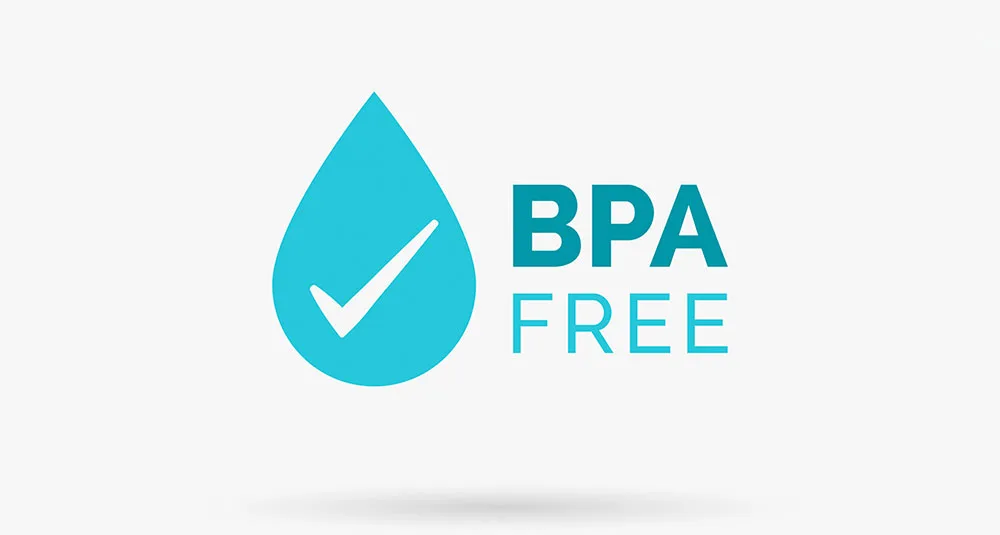The benefits of BPA-free water bottles
When exploring our selection of custom water bottles, you may have noticed that we have several styles labeled as BPA-free. You’ve probably heard this phrase before—BPA-free—but have you ever stopped to give it much thought? Choosing products that don’t contain this potentially harmful chemical is good for the health and well-being of the people and the planet. Let’s take a deep dive into why you should make all of your corporate giveaways BPA-free.
What is BPA?
BPA (bisphenol A) is an industrial chemical that is employed in the manufacture of some plastics and epoxy resins. It is generally used to coat the inside of plastics, including in your food storage containers, measuring cups, drinkware, and water bottles, in order to help the plastic last longer and not wear away over time. Unfortunately, the downfall of this coating is that the BPA can seep into whatever the container is holding, including food and water. Though the FDA and the U.S. Department of Health say they don’t yet know how risky BPA is when consumed regularly, some studies do indicate that it could be harmful to our bodies.
Why choose BPA-free?
Whether you’re looking for great ways to boost your employee wellness program or are setting up at a trade show and want to hand out health-focused giveaways, there are a few reasons why custom BPA-free water bottles should earn your attention over lesser quality ones.
- They’re better for your body—The primary reason to keep your giveaways BPA-free is because the stuff is not good for us, plain and simple. Though the full spectrum of health risks aren’t yet entirely known, BPA has been shown to play a role in hormone-dependent tumors, including breast and prostate cancer, as well as infertility. Studies have also linked the chemical to heart disease, diabetes, asthma, fetal brain development, and body weight. BPA is considered an “endocrine disrupter” and may disrupt hormone levels.
- They’re better for your brain—Interestingly, consuming large amounts of BPA may be especially bad for your most vital organ. Researchers found that BPA may suppress certain genes and predispose people to certain neurodevelopmental disorders. Some studies also link BPA to memory loss and a lowered capacity to learn, while others suggest that it may have an effect on the brain and behavior of young children.
- They’re not afraid of heat—One of the primary issues with BPA-laden containers is that the chemical can seep into their contents, especially when they are microwaved. According to the Harvard Medical School, migration of BPA and phthalates may be greater when microwaving fatty foods, including meats and cheeses. While it probably isn’t a good idea to microwave BPA-free plastic—the effects of microwaving plastic in general is not yet widely known—it is an absolute no-no to microwave BPA products.
- They’re better for the environment—BPA affects the environment in the same way that it affects the human body: by disrupting hormones. Studies show that BPA can mimic animal hormones and cause defects and reproduction issues in some aquatic animals. Of course, when BPA is disposed and enters the landfill, the chemicals then seep into the local environment and pollute the soil and waterways.
- They’re higher quality—Usually, when you’re buying products labeled as BPA-free, you’re probably dealing with manufacturers and designers who care about quality and aren’t simply trying to produce the largest amount of goods for the lowest possible price. When you opt for BPA-free water bottles, for example, you’ll find that they tend to last longer and do a better job of regulating temperature.
Spotting BPA-free products
Anytime you need freebies and giveaways for trade shows, employee onboarding kits, and corporate giveaways, make sure that you only hand out items that don’t contain this pesky chemical. So how can you tell if a product is BPA-free? Your best bet is to shop with a company like us that offers top-quality, branded BPA-free drinkware. To be sure you’re not accidentally consuming BPA, make sure that all your plastic items are labeled with a 1, 2, or 5 surrounding the recycling symbol on the bottom.
